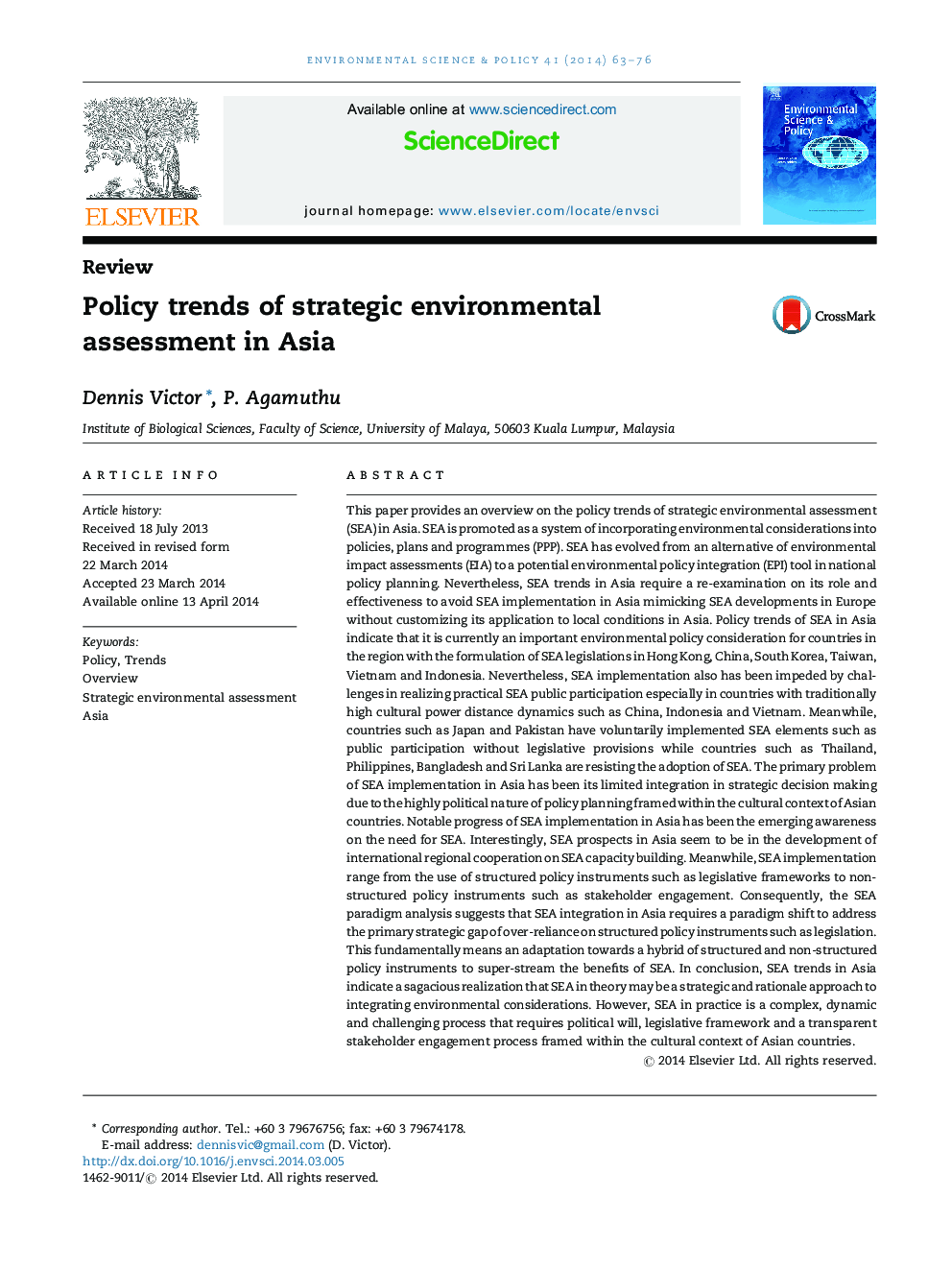| کد مقاله | کد نشریه | سال انتشار | مقاله انگلیسی | نسخه تمام متن |
|---|---|---|---|---|
| 1053576 | 1485065 | 2014 | 14 صفحه PDF | دانلود رایگان |
• SEA policy trends in Asia indicate a proliferation of SEA legislation.
• Primary SEA problem is its limited integration in strategic decision making.
• Notable SEA progress is the emerging awareness on the need for SEA.
• Main SEA prospects is in international regional cooperation on SEA.
• SEA paradigm shift requires linkages of structural and non-structural policy instruments.
This paper provides an overview on the policy trends of strategic environmental assessment (SEA) in Asia. SEA is promoted as a system of incorporating environmental considerations into policies, plans and programmes (PPP). SEA has evolved from an alternative of environmental impact assessments (EIA) to a potential environmental policy integration (EPI) tool in national policy planning. Nevertheless, SEA trends in Asia require a re-examination on its role and effectiveness to avoid SEA implementation in Asia mimicking SEA developments in Europe without customizing its application to local conditions in Asia. Policy trends of SEA in Asia indicate that it is currently an important environmental policy consideration for countries in the region with the formulation of SEA legislations in Hong Kong, China, South Korea, Taiwan, Vietnam and Indonesia. Nevertheless, SEA implementation also has been impeded by challenges in realizing practical SEA public participation especially in countries with traditionally high cultural power distance dynamics such as China, Indonesia and Vietnam. Meanwhile, countries such as Japan and Pakistan have voluntarily implemented SEA elements such as public participation without legislative provisions while countries such as Thailand, Philippines, Bangladesh and Sri Lanka are resisting the adoption of SEA. The primary problem of SEA implementation in Asia has been its limited integration in strategic decision making due to the highly political nature of policy planning framed within the cultural context of Asian countries. Notable progress of SEA implementation in Asia has been the emerging awareness on the need for SEA. Interestingly, SEA prospects in Asia seem to be in the development of international regional cooperation on SEA capacity building. Meanwhile, SEA implementation range from the use of structured policy instruments such as legislative frameworks to non-structured policy instruments such as stakeholder engagement. Consequently, the SEA paradigm analysis suggests that SEA integration in Asia requires a paradigm shift to address the primary strategic gap of over-reliance on structured policy instruments such as legislation. This fundamentally means an adaptation towards a hybrid of structured and non-structured policy instruments to super-stream the benefits of SEA. In conclusion, SEA trends in Asia indicate a sagacious realization that SEA in theory may be a strategic and rationale approach to integrating environmental considerations. However, SEA in practice is a complex, dynamic and challenging process that requires political will, legislative framework and a transparent stakeholder engagement process framed within the cultural context of Asian countries.
Journal: Environmental Science & Policy - Volume 41, August 2014, Pages 63–76
